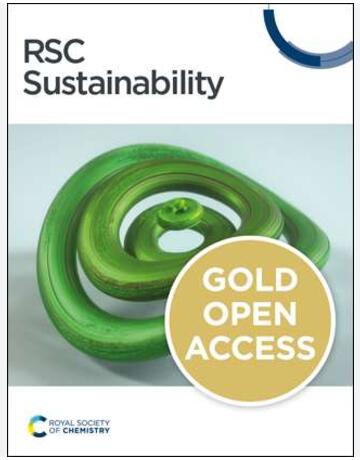将循环经济框架应用于区块链农业生产
IF 3.3
3区 环境科学与生态学
Q2 ENVIRONMENTAL SCIENCES
引用次数: 0
摘要
农业是世界上最重要的经济活动之一,对一些国家的粮食安全和社会经济发展至关重要。然而,杀虫剂是防治害虫和杂草以及保证农业产量所必不可少的,它的使用带来了一个与杀虫剂空包装管理有关的环境问题。农药包装的不当处置会危及环境和人类健康。因此,如果我们要确保安全地收集、回收和处置包装,就必须实施逆向物流系统。区块链技术是一种创新的解决方案,可提供透明、不可更改的数据记录,从而促进可追溯性。在本研究中,我们介绍了通过区块链将基于循环经济的框架应用于农业生产的情况(并涉及生产和消费中的所有参与者),从而能够更负责任地处置空农药包装,以便最终进行再利用、回收或再循环。从 2018 年到 2023 年,我们通过 Scopus 和 Web of Science 开展了文献研究;我们的主要目的是使用以下关键词概述这一相关研究领域:"区块链"、"循环经济"、"农药包装 "和 "逆向物流"。通过使用图表进行文献计量学分析,可以完善从数据库中收集到的信息。我们分析了如何将区块链与逆向物流相结合,强调了区块链如何通过各种可持续和负责任的农业方法促进循环经济的原则。本文章由计算机程序翻译,如有差异,请以英文原文为准。
Applying the Circular Economy Framework to Blockchain Agricultural Production
Agriculture is one of the most economically important practices in the world; it is essential for food security and socioeconomic development in several countries. However, the use of pesticides, which are essential for fighting pests and weeds and guaranteeing agricultural yields, has brought about an environmental issue pertaining to the management of empty pesticide packaging. The improper disposal of pesticide packaging can put both environmental and human health at risk. Therefore, the implementation of reverse logistics systems will be essential if we are to ensure that packages are collected, recycled, and disposed of safely. Blockchain technology is an innovative solution that offers transparent and immutable recording of data, thereby facilitating traceability. In this study, we present the application of a circular economy-based framework to agricultural production via blockchain (and involving all actors within production and consumption) to enable the more responsible disposal of empty pesticide packaging for eventual reuse, recovery, or recycling. Bibliographical research was carried out through Scopus and Web of Science from 2018 to 2023; we principally aimed to provide an overview of this pertinent area of research using the following keywords: “blockchain”, “circular economy”, “pesticide packaging”, and “reverse logistics”. Bibliometrics using graphs and tables made it possible to refine the information collected from the databases. We analyzed how blockchain can be integrated alongside reverse logistics, highlighting how it can promote the principles of the circular economy through various methods of sustainable and responsible agriculture.
求助全文
通过发布文献求助,成功后即可免费获取论文全文。
去求助
来源期刊

Sustainability
ENVIRONMENTAL SCIENCES-ENVIRONMENTAL SCIENCES
CiteScore
6.80
自引率
20.50%
发文量
14120
审稿时长
17.72 days
期刊介绍:
Sustainability (ISSN 2071-1050) is an international and cross-disciplinary scholarly, open access journal of environmental, cultural, economic and social sustainability of human beings, which provides an advanced forum for studies related to sustainability and sustainable development. It publishes reviews, regular research papers, communications and short notes, and there is no restriction on the length of the papers. Our aim is to encourage scientists to publish their experimental and theoretical research relating to natural sciences, social sciences and humanities in as much detail as possible in order to promote scientific predictions and impact assessments of global change and development. Full experimental and methodical details must be provided so that the results can be reproduced.
 求助内容:
求助内容: 应助结果提醒方式:
应助结果提醒方式:


